This interview is an interesting one. It’s not just a single author—it’s a threesome of the biggest authors in the Western writing business. This is an occasion—and one that won’t happen too often. For the first time, we have gathered Cliff Roberts, John. D. Fie and Alex Cord together for a series of interviews.
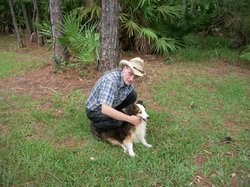 John D. Fie, Jr.
John D. Fie, Jr.
One of the most successful Western authors of his generation. His hits include the multi-million selling “Blood on the Plains,” “Luke Pressor: U.S. Marshal,” and “Incident at Benson’s Creek.”
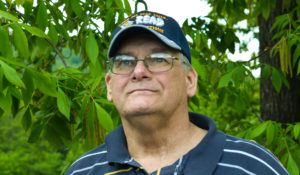 Cliff Roberts
Cliff Roberts
A multi-million book selling powerhouse who has turned out hit, after hit, after hit. His latest is called “Draw!” His other million sellers include “Reprisal: The Eagle Rises,” “Reprisal: The Gauntlet,” “Connor Slate: Bounty Hunter,” “Ambushed” and many others.
Alex Cord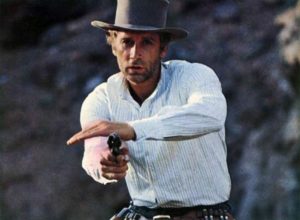
The legendary actor and star of TV’s “Airwolf,” who has scored award-winning hit novels like “A Feather in the Rain.” His latest novel is called “High Moon at Hacienda del Diablo.” “A Feather in the Rain” is currently being considered as a movie.
Welcome to this interview Alex, John and Cliff. How are you all today?
Alex: Feeling pretty good—thank you for having me.
John: Great to be with you.
Cliff: Greetings!
Cliff, let me start with you. You seem eager to start. Are you ever surprised by how many Western readers there are in the world?
Yes, I was surprised at the number of people who currently read Westerns. At first, I thought it was one of the niche genres and that Westerns had pretty much faded into history. I was wrong. The Western readers are great, friendly and loyal to a fault. I greatly appreciate their patronage. Thank you for reading my work, and I’ll endeavour to make each new book better than the one before.
John, I think this is a good question for you. With your novels constant favorites, perhaps you can explain to us why Westerns are still so popular?
As surprised as people are at the success of Westerns, I’m really not. I’ve always enjoyed the West, and I know many others have, too. I think there’s a lot of hype when it comes to romance, erotica and horror—but the Western fan base is just as busy buying the books they want.
I guess you can identify with that, Alex. As someone who has been writing and making Western movies—let me ask you this one: Do you prefer writing (and acting) the heroes or the villain characters?
I prefer to write about human beings and discover who and what they are. There are elements of heroes and villains in all of us. Shakespeare wrote entire plays about one element of humanity. Evil: Richard III; jealousy: Othello; heroism: Henry V. I like to delve into the depths of an individual and see what I can find.
Interesting—but it’s the title that sometimes draws the reader in before they’ve even discovered the writer. John—let me ask you this: How did you come up with the title of your “Blood on the Plains” novel?
Well, I was looking at a photo of the Kansas Plains and thought about how it must have been back then, with the first wagon trains crossing the plains and facing a vast nothingness in all directions. Then, the thought of Indian attacks and the blood that must have been spilled making that crossing. As I looked over more photos, the story was forming in my mind. I then came up with the title Blood on the Plains.
Did you have a different experience with “Luke Pressor: U.S. Marshal?”
Luke Pressor, U.S. Marshal is a story in itself. I was asked to publish a short story by Outlaws Publishing. I looked through the short stories I had written over the years, and I just couldn’t make up my mind. Then I thought, why not combine a story or two? From the outset, it became a challenge. Luke Pressor became the hero of the story. This is how it became Luke Pressor, U.S. Marshal.
It’s interesting how things develop. Cliff—let me ask you this: Do you think part of the appeal of Westerns comes from the fact that they mirror the American way of life?
I think Westerns are the basis of the American way of life. The good guy is always honest, sometimes to a fault; and he believes in fair play, family and doing an honest day’s work for an honest day’s pay. In the Westerns, good triumphs over evil without exception.
And Alex—which Westerns do you think have really affected your life?
Red River, Lonesome Dove, Monte Walsh, The Westerner, Stagecoach, My Darlin’ Clementine, The Wild Bunch, One-Eyed Jacks. I list them not in order of preference. They are all fine films that I have seen more than once, some more than three or four or five times. Any of John Ford’s films. John Wayne, Ben Johnson, the great Gary Cooper, Walter Brennan, Slim Pickens, Marlon Brando, Karl Malden. These are the finest of the fine.
John—I suppose part of the appeal of the Western comes from the covers chosen by authors and publishers to illustrate the book. What has your experience been like with covers?
Blood on the Plains, at first, had a very bland looking cover. I had a contract with a different publisher at the time. The book wasn’t moving. Outlaws Publishing took a look at the book and the cover. It wasn’t until I signed with Outlaws Publishing that the book was pulled from the market. The book was re-designed, and I immediately saw the difference. The book, with the new cover design, just jumped at you. I knew right then I had made a good decision going with Outlaws. They specialize in the Western genre. Luke Pressor, U.S. Marshal also had two different book covers. Several covers were designed, and we put our heads together and again came up with a colorful book cover with eye appeal.
I think you have some of the best covers around, John. Cliff—you signed a contract with Outlaws Publishing after being both traditionally published and self-published. Do you think a larger publisher is important? Is it a step towards success to garner a large publisher’s interest?
I think it is important to have a good publisher, no matter in which genre you write. I’ve had several publishers who failed big time at actually helping me or being part of my team for success. The larger, well established publishers seem to be out for the almighty dollar and that alone. Your success as a writer doesn’t matter to them, other than they get more money. If you’re asking who I’d consider publishing my Western novels, I’d say use Outlaws Publishing. That’s who I use. They will treat you right, and they really want you to be a success and place their success secondary to yours. Outlaws has several divisions, so they can help you publish in almost any genre. If you’re looking for a publisher, send your manuscript to Outlaws and see if they can help you. Oh, yeah, they don’t charge you to up front to publish your book and are extremely fair on royalty splits.
John—what do you do differently to other authors when writing a Western?
I like to use small, quick one-liners in my stories to add a little comedy. Also to have a few characters who are somehow different from the others.
I think that’s an important part of being human, John. It’s a shame more writers can’t attempt to inject human characteristics into their books. Alex, let me ask you a similar question. What real life inspiration do you draw from people you know when writing your books?
My life is filled with experiences with all kinds of people. A rich bank from which to draw truth. Most of my characters are either based on people I know or have elements of them. I have made a practice of acquiring characters throughout my life and studying them. A creative artist, writer, actor, painter, dancer, musician, must be intensely curious, perceptive and interested.
Cliff would you agree with Alex? And would you go back to the West if you could?
I would agree with Alex. And no, I don’t think so. Whereas part of the Old West seems romantic and peaceful, it was a very dangerous place. Knowing me as I do, I’d probably end up having to learn to be a gunfighter and fast because I don’t take injustice well. I’d be out there trying to stop the lawlessness and probably get shot dead. Maybe I’d even become a historical figure if I did. The quickest lawman to get killed.
John—what would your one piece of advice be for a young author?
For new writers, make sure you get an editor. You can’t edit the book enough. When you’re ready to publish, look around and choose wisely, then stand by for the reviews.
I think that’s great advice. Alex, did you learn anything from writing your latest Western?
I did. That writing is fun, challenging and bloody hard work. Many people say they would like to write a book, and I believe that everyone has a book in them. Getting it out from within and onto blank pages is another matter. It requires huge belief and relentless commitment.
What a learning process. Cliff, what do you think is the key to success?
Good writing, good promotion and making sure you surround yourself with those who will help you, rather than hinder you. A good publisher, publicist, and editor will make you as an author. A poor publisher, publicist, or editor will break you. I need say no more. Invest in yourself, your product and hire a good publicist.
And John—what does it feel like to be one of the top authors in the business?
It feels pretty good. It’s good to know that somebody is enjoying your story.
Check out the latest books from these three great authors.
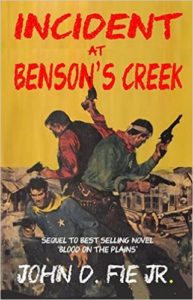
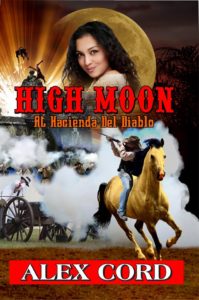
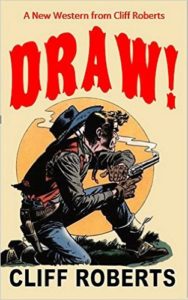
 As humans we find ourselves being negative more often than being positive. As a writer, it’s easier to be negative about the reception your books have garnered than to find the good. In my everyday job as a promoter of books, I have found that, at times, you are working against a wall of negativity—a writer who doesn’t believe their book will be a success, a writer who doesn’t believe they can write, a writer who feels that other writers are superior—these mindsets, or doctrines, have set up authors for failure. To negate is to take away, to remove, to leave less. To negate is to start your journey as an author who feels as though they have less to offer—and that doctrine is a sure way to fail because believing you are a failure will make you a failure.
As humans we find ourselves being negative more often than being positive. As a writer, it’s easier to be negative about the reception your books have garnered than to find the good. In my everyday job as a promoter of books, I have found that, at times, you are working against a wall of negativity—a writer who doesn’t believe their book will be a success, a writer who doesn’t believe they can write, a writer who feels that other writers are superior—these mindsets, or doctrines, have set up authors for failure. To negate is to take away, to remove, to leave less. To negate is to start your journey as an author who feels as though they have less to offer—and that doctrine is a sure way to fail because believing you are a failure will make you a failure.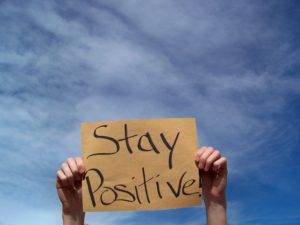 work, and problems to deal with. We all have issues that need to be fixed—and we have people who want us to fix them—but when we start a project on a negative note and we negate ourselves, we are only going to receive the very worst outcome. Time and time again, I have told people about the three C’s—and I’ve had arguments from hither and thither about the usefulness of such a thing. At this stage in my career, I couldn’t care less about what others think. Everyone has an opinion, but I do know that those three C’s have helped a lot of authors become successful, and I know those who are negative have been less successful. So if there is any inkling of good you can find in your book, your readership, and your reviews, take it and hold onto it because it’s the good, the positive and the forward that will lead you to success—not the backward, negative, negating thoughts that we all want to have so badly. Those thoughts will never bring a good thing to anyone’s doorstep.
work, and problems to deal with. We all have issues that need to be fixed—and we have people who want us to fix them—but when we start a project on a negative note and we negate ourselves, we are only going to receive the very worst outcome. Time and time again, I have told people about the three C’s—and I’ve had arguments from hither and thither about the usefulness of such a thing. At this stage in my career, I couldn’t care less about what others think. Everyone has an opinion, but I do know that those three C’s have helped a lot of authors become successful, and I know those who are negative have been less successful. So if there is any inkling of good you can find in your book, your readership, and your reviews, take it and hold onto it because it’s the good, the positive and the forward that will lead you to success—not the backward, negative, negating thoughts that we all want to have so badly. Those thoughts will never bring a good thing to anyone’s doorstep.
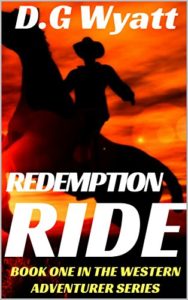
 John D. Fie, Jr.
John D. Fie, Jr. Cliff Roberts
Cliff Roberts



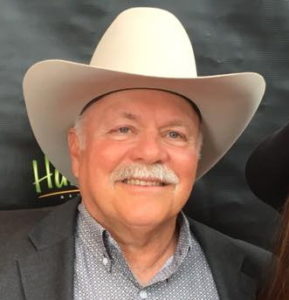 Have you ever wondered what it’s like to be a titan of the entertainment industry? I sure have. This interview is with Troy Andrews-Smith. A man who has acted, written songs, written books, produced motion pictures and lived among the Hollywood elite. He has been entertaining himself lately with a new kick. That kick is… Westerns. Let’s catch up with Troy and find out how much he is enjoying being a Western writer…
Have you ever wondered what it’s like to be a titan of the entertainment industry? I sure have. This interview is with Troy Andrews-Smith. A man who has acted, written songs, written books, produced motion pictures and lived among the Hollywood elite. He has been entertaining himself lately with a new kick. That kick is… Westerns. Let’s catch up with Troy and find out how much he is enjoying being a Western writer…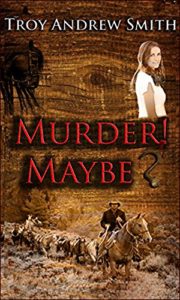
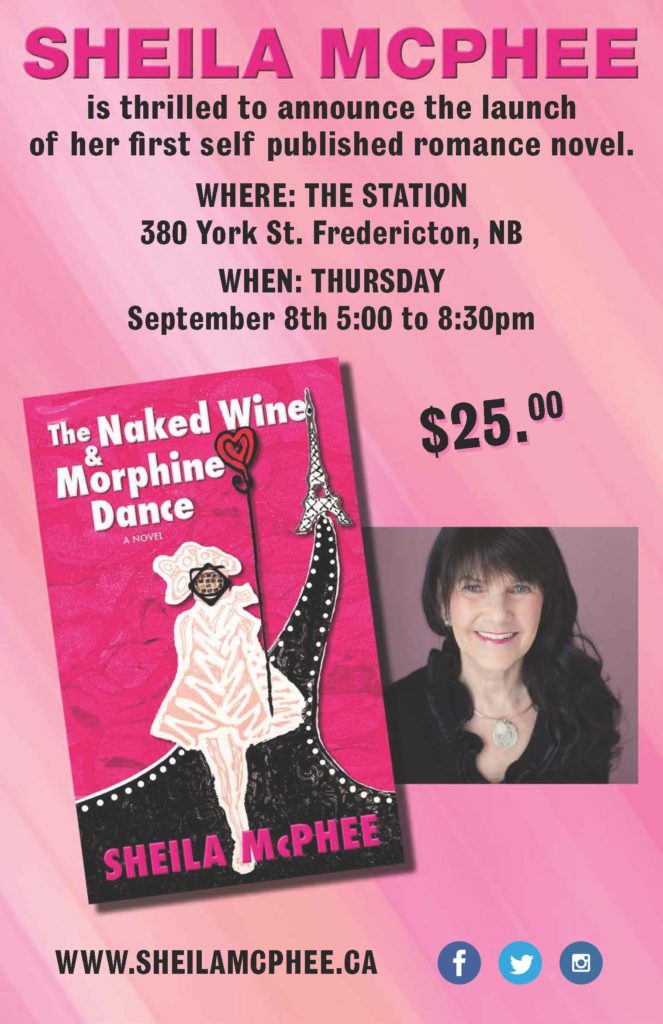
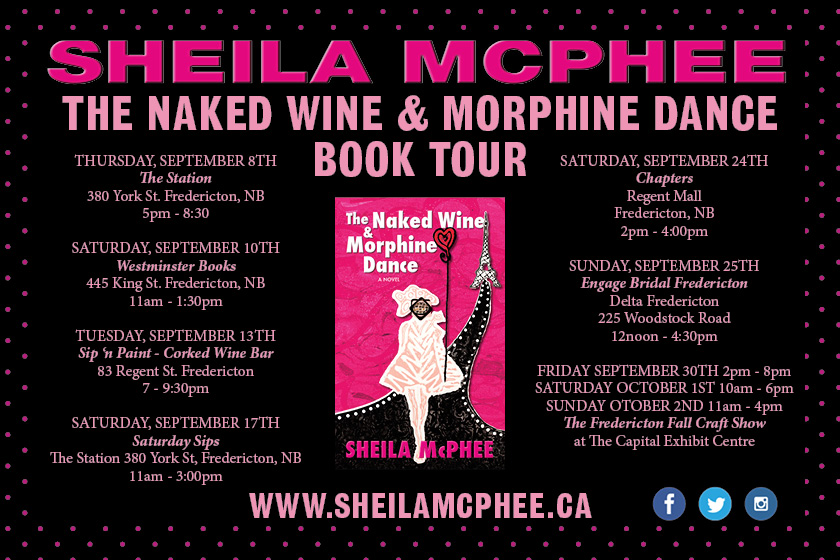
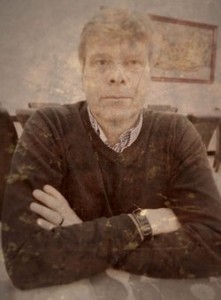 Gary—thank you for agreeing to this interview. Can I start by asking what got you interesting in the BEK phenomenon in the first place?
Gary—thank you for agreeing to this interview. Can I start by asking what got you interesting in the BEK phenomenon in the first place?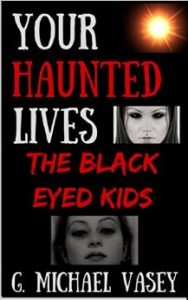 any accounts of people who have asked these people into their homes?
any accounts of people who have asked these people into their homes?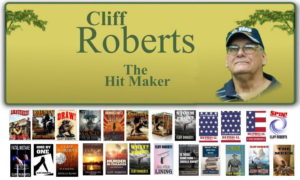 Outlaws Publishing, LLC has announced that sales of Western novels in the United States doubled over Labor Day weekend with the help of Nick Wale, of Novel Ideas leading the promotional way.
Outlaws Publishing, LLC has announced that sales of Western novels in the United States doubled over Labor Day weekend with the help of Nick Wale, of Novel Ideas leading the promotional way.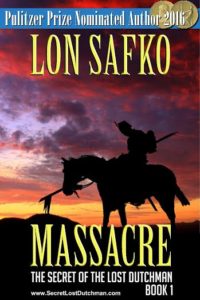
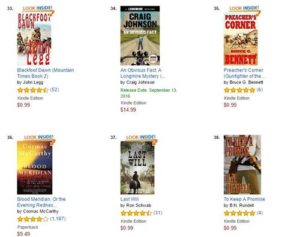 Authors are always asking me THE question, as I call it. How can I become as successful as some of the big names I see in the Western writing world? I have started to ask them a simple question in return. How many Western authors have achieved ONE MILLION PAGES read in a single month? You may know the answer—but you may not, so let’s take a look. Well… since 2016 started, I’ve personally seen several: John D. Fie, Jr., Cliff Roberts, G.P. Hutchinson, A.H. Holt…. and I could keep rambling names off until I turned old and gray. The reason I ask authors that question is because the above mentioned authors, and a bucket-load of other authors to boot, have achieved what many thought to be the impossible, and they did it with the help of three little things—the THREE C’s.
Authors are always asking me THE question, as I call it. How can I become as successful as some of the big names I see in the Western writing world? I have started to ask them a simple question in return. How many Western authors have achieved ONE MILLION PAGES read in a single month? You may know the answer—but you may not, so let’s take a look. Well… since 2016 started, I’ve personally seen several: John D. Fie, Jr., Cliff Roberts, G.P. Hutchinson, A.H. Holt…. and I could keep rambling names off until I turned old and gray. The reason I ask authors that question is because the above mentioned authors, and a bucket-load of other authors to boot, have achieved what many thought to be the impossible, and they did it with the help of three little things—the THREE C’s.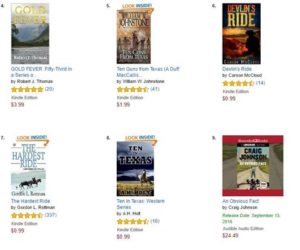 or toiling away on your first; take some time and think about these three C’s. In fact, you may want to take a lot of time and think about them because they are incredibly important to your success as an author. All the books I’ve promoted, and the success my authors have had, can be traced back to the simple Three C’s. The Three C’s gave a solid foundation on which to build book sales and reader-author relations. You can take these Three C’s and turn them into your own success story.
or toiling away on your first; take some time and think about these three C’s. In fact, you may want to take a lot of time and think about them because they are incredibly important to your success as an author. All the books I’ve promoted, and the success my authors have had, can be traced back to the simple Three C’s. The Three C’s gave a solid foundation on which to build book sales and reader-author relations. You can take these Three C’s and turn them into your own success story.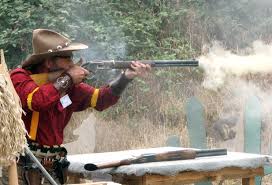 This interview is with John D. Fie. Jr. The man who has helped put the Western back on top. His first two Westerns have both been bestsellers, and he has received sales awards from his publishing company Outlaws Publishing.
This interview is with John D. Fie. Jr. The man who has helped put the Western back on top. His first two Westerns have both been bestsellers, and he has received sales awards from his publishing company Outlaws Publishing. Is advertising important?
Is advertising important?
Recent Comments